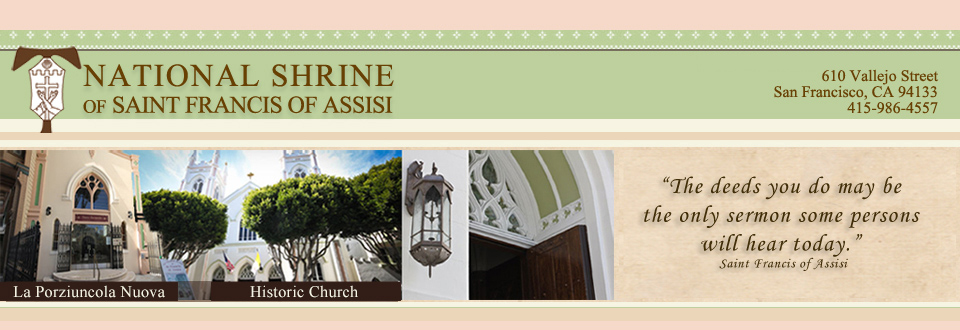THIRTY-FIRST SUNDAY IN ORDINARY TIMES
NOVEMBER 4, 2012
A few years ago, when I was the chaplain of our high school in Southern California, we had a student body assembly to welcome a guest speaker, "Happy Days" actor Henry Winkler, who was going to address the 675 boys on how he overcame learning disabilities. The school administration asked me to prepare a closing prayer for the assembly.
Knowing that Mr. Winkler is a Jew and that our freshman religion teacher, Mark Fredette, had taught all the students how to say the Shema in Hebrew during the course of his Old Testament Studies class, at the appropriate time, I invited Mr. Fredette to come to the microphone and to lead the entire assembly in prayer: "Shema Yisrael, Adonai Eloheinu! Adonai Ehad!"
It was profoundly moving to hear the walls of that gymnasium resonate with almost 700 male voices offering the foundational prayer of the Jewish People: "Hear, O Israel. The Lord is God! The Lord is One!" Henry Winkler was very touched that a school full of Gentiles had honored him, his faith, his People, and his God—our God, really—in that one simple line from Deuteronomy that devout Jews recite daily in their prayers.
It is interesting to note that, when pressed to identify the most important of all the laws of the Mosaic Code, Jesus does not cite one of the Ten Commandments or one of the other 613 laws observant Jews are expected to fulfill. Rather, he cites the Shema, "Hear O Israel, the Lord our God is Lord alone" and then enumerates the legal demands this makes: "You shall love the Lord your God with all your heart, with all your soul, with all your mind, and with all your strength."
Even though he is not asked, "What is the second greatest commandment?" Jesus immediately offers, "The second is this: You shall love your neighbor as yourself." Jesus cuts to the quick and tells us that the most important moral demand that the God of Abraham, Isaac, and Israel makes upon us is that we be ethical monotheists.
There are two equally important and compelling elements to the greatest commandment, a faith component and actions steps. It is not enough simply to believe in the one, true God; we must love him with every atom of our beings. And, because we love him, we seek to please him by seeking and doing his will.
How do we show that we love God with all our heart, all our soul, all our mind, and all our strength? By loving our neighbor as ourselves.
Rabbi Hillel was once asked to summarize the whole law standing on one leg. His summary was, "What you hate for yourself, do not do to your neighbor. This is the whole law, the rest is commentary."
This "Golden Rule" that we treat others as we ourselves would like to be treated, finds expression in every great, major religious tradition in the world. How is it, then, that we find it so hard to put into practice? I think observing little children offers a clue.
People often cite children as the picture of innocence and goodness. They are not. Little children are the epitome of narcissism, selfishness, and egocentrism.
Look at what they say, "She's sitting on my side of the line!" or "He started it!" or Give that to me—it's MINE!" This is what comes naturally to all human beings. As long as we think and act like children, we cannot attain to the love for God and neighbor that Jesus demands.
When we look at difficulties and turmoil in the world, very often, they are caused and fed by the childish narcissism displayed by adults. "They're building on my side of the line," or "We didn't start this conflict," or "IT'S MINE!"
The love that Jesus wants us to display is rooted in selflessness and caring for others' needs and desires before our own. This kind of altruistic love does not come to us naturally. It must be grounded in grace and cultivated by random acts of kindness.
If we act like children, we will fail, but if we live like adults, using our ability to reason and choose wisely (the components of our humanity that make us god-like), we will be able to love God supremely and our neighbors as ourselves.
It does, however, take practice.
Pax et Bonum,
Fr. Gregory Coiro, O.F.M.Cap.


